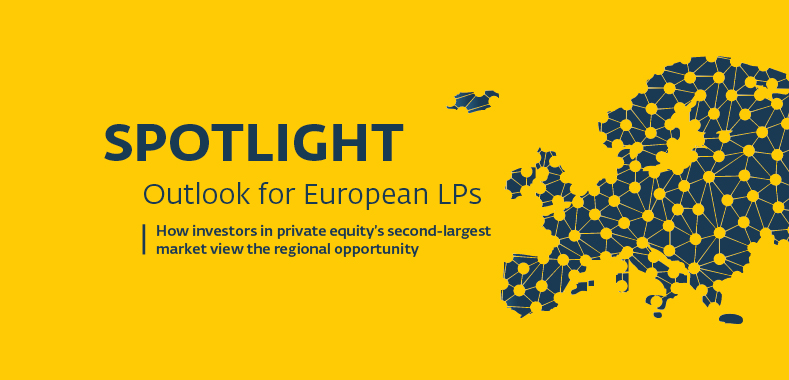Brexit & Real Estate: ‘Injuries, but No Fatalities’
As the U.K. heads for the exit door, real estate experts say ‘caution’ and ‘resilience’ are the key watchwords
For a brave few real estate investors, Brexit could be a very good thing.
As Ric Lewis, founder and chief executive officer of London-based Tristan Capital, which invests in opportunistic and core-plus deals in the U.K. and Continental Europe, puts it, “Uncertainty brings opportunity.”

Tristan Capital Partners
“If you look back, there have been plenty of headwinds in Europe: Brexit, Frexit, oil price changes, and so on,” Lewis says. “So many things keep buffeting people’s confidence along a road that we always felt would be slow and bumpy towards recovery, albeit aided by huge monetary easing.”
He adds that Europe remains a hodgepodge of risk; the real skill lies in managing the “two-way traffic” and “friction” that exist at any given time.
Interviews with several real estate professionals brought a range of prediction, but most were less dire than one might think. Lewis predicts a “slow car crash scenario where there are injuries but no fatalities”; others expect resilience in the short, medium, and long term, particularly in London real estate
But for now, it is all about caution. Deutsche Pfandbriefbank (pbb), a leading specialist European lender for real estate and public investment finance, writes loans selectively for U.K. real estate acquisitions, albeit with a focus on properties with stable tenant structures.
Thomas Koentgen, deputy chief executive officer, says that so far pbb has seen only moderate effect from Brexit. “It is fair to assume that the U.K., and London in particular, will continue to attract significant real estate investments, though certain property types or regions may turn out to see less interest,” he says.
Will Rowson, head of Europe at advisor Hodes Weill & Associates, has witnessed a reticence among U.S. investors to commit to U.K.-focused real estate funds. “It is an excuse to not do something,” he says. “I think there are some more aggressive investors from the U.S. who are thinking there could actually be an opportunity here eventually, with pricing getting dislocated. My sense is that if a firm can raise capital and wait, there is going to be a little bit of blood in the water eventually, but I don’t think people are seeing that yet.” By blood in the water, he means potentially spilled by investors that bought into Central London late in the cycle and leveraged up. The peak arguably arrived in June 2015.
Pockets of Opportunity
David Jones, head of real estate capital markets at London-based law firm Ashurst, says his firm continues to see a large number of deals in the London market, particularly from Asian investors who see Brexit as an opportunity rather than a threat. The significantly weakened British sterling has helped, too.
That said, perhaps sentiment is beginning to weaken even among Asian buyers. Victoria Henry, partner at law firm CMS, says that at the time of the interview, three deals involving Asian capital have either been put on hold or pulled in the prior ten days. One party specifically cited Brexit as the reason She said that while caution is being shown towards U.K. real estate, demand is high for alternative real estate sectors, such as student accommodation.
While nothing can be described as “Brexit-proof,” Ashurst’s Jones concurs that asset classes in the U.K. such as student accommodation, senior living and healthcare, and build-to-rent/private residential are finding ample interest. As in the U.S., such sectors are in line with demographic shifts and a real social infrastructure need.
Hit and Miss
CBRE, a real estate broker headquartered in Los Angeles but with a huge business in Europe, has found that some values have actually increased since the Brexit referendum last June. Nick Axford, head of global research, says, “Values in some sectors, particularly industrial property, are now higher than they were immediately before the referendum.”
CBRE says the industry consensus—which CBRE agrees with—is that whatever happens in the short term, property values will recover in the medium term. There is a belief that the U.K. economy is fundamentally sound, with very low unemployment; vacancy rates in most markets remain low, and construction activity is likely to fall, which will support rental levels. In addition, banks and investing institutions are generally in a healthier position, with lower levels of debt than in previous cycles. As such, good quality real estate with a long, secure income stream is likely to remain attractive to investors.
Tristan Capital’s Lewis says his firm talks a lot about the “bones of a deal” and how an investment performs in adverse market conditions. “We’re looking at things that we think represent good fundamental value, some of which that might be incorrectly valued, given the headwinds. But we also have to price in what happens if it’s a ‘hard’ Brexit. Can these assets and my strategy survive it? What I would argue is, that’s exactly what my clients are paying us to do—to make thoughtful, well-reasoned, forward-looking bets that may capture the upside but consider the downside risk of doing so.”
The biggest concern for him is that the divorce from the EU is long and drawn. Yet Lewis adds, “We are doing some things where we feel the institutional appetite might be temporarily impaired, which has changed pricing.”
Andy Pyle, head of U.K. real estate at KPMG, believes value-seeking investors will always be able to make money. “Some will find situations allowing for a more contrarian view, and will seek situations that they believe are mispriced,” he says.
Richard Divall, Colliers International’s head of cross-border capital markets, EMEA, believes U.S. private equity real estate firms realize it is very difficult to make 20-percent-plus returns from U.K. real estate, given existing high prices. He sees a shift towards more core-plus funds shooting for 12 to 13 percent. “I see firms being a lot more wary, undertaking more due diligence and underwriting,” he says.
But he senses that there’s still interest. Divall cites Commerz Real, owned by Germany’s Commerzbank, which has started to sell in the U.K. because it is wary of Brexit. In June this year, it placed Athene Place in London on the market for £120 mln ($158 mln). The building is leased to Deloitte for just two more years, and there is a belief that current rent could be taken from £39.50 towards £50. It is currently under offer to a London-based pan-European private equity real estate firm. “Appetite is still there. London is far more resilient than the regions, but it seems a lot of money is moving to regional cities as well,” he says.
Lewis says that a great opportunity exists where historical owners of real estate can’t afford the capital expenditure for an asset in line with their original business plan.
“If we get any winds at our backs because things really do improve post-Brexit, then great,” he says. “If we don’t, we have owned these kinds of assets with seven or eight years of weighted average leases through the global financial crisis. We know how it works in the downside and how to survive this.”
For a brave few real estate investors, Brexit could be a very good thing.
Register now to read this article and access all content.
It's FREE!
Privcap Email Updates
Subscribe to receive email notifications whenever new talks are published.












